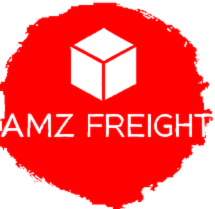Amazon FBA program in the EU.
There are different fulfillment options Amazon Europe is offering and all of these have specifics when it comes to VAT, as well.
Once goods are listed on the marketplace, the seller must decide how the orders will be fulfilled – how will the goods be delivered to the customers across Europe. One of the solutions is to arrange your own transport and deliver directly to end customers around Europe (FBM).
Whilst this can have some benefits, most sellers prefer to take advantage of one of the following three Amazon FBA options:
✘ Pan-European FBA
✘ European Fulfillment Network (“EFN”)
✘ Multi-country Inventory (“MCI”)
PAN EU FBA enrolment basically means permission to Amazon to transfer inventory all over Europe and fulfill orders from the local fulfillment center. Pan-European FBA is helping a store to place inventory closer to European customers – orders will be fulfilled from 7 main distribution centers (UK, Germany, Spain, France, Italy, Poland, and the Czech Republic). Selling with Pan-European FBA foresees in 24/7 Amazon support. When a product is sold in one of Amazon’s European marketplaces via Pan European FBA, only the local fulfillment fee from that marketplace will be paid. As contrast, when a product is sold to customers of other marketplaces via the European Fulfillment Network (EFN), a cross-border fee for each order shipped will be paid.
Using Pan-European FBA immediately makes the seller obligated to be registered for VAT in all 7 countries. Therefore, the seller must take into consideration the cost of VAT registration (compliance in 7 states) and put them against the fact of fulfilling and delivering orders at lower costs and in less time. That’s the catch! More information on Pan European FBA at https://goo.gl/6YuWZU.
EFN is, therefore, more simple as the seller sends products to just one of Amazon’s warehouses. Consequently, all orders are fulfilled from that particular country. The downside to this is that delivery times will be much longer and in most cases, there won’t be access to Prime customers. Additionally, delivery costs are much higher when you sell to customers of other marketplaces via EFN. In the end, this results in cross border fees being paid for each order that is shipped.
EFN program implies to register for VAT in the country of storage. Seller invoices and collects VAT on sales and passes it to the national tax authorities via VAT tax return filings. The EFN is a great service for starting businesses that want to benefit from Amazon’s fulfillment networks and that do not need to store their products in several countries.
MCI (Multi-country Inventory) enables a seller to dispatch FBA inventory to Amazon fulfillment centers in multiple countries of choice. It’s an alternative to the Pan-European option. Here, the seller can choose the countries to which inventory will be shipped and stored. In this scenario, the seller is only obliged to register in the countries where inventory is stored (instead of all 7 in the Pan-European option). Therefore, sellers save on VAT compliance costs. As a result, local fulfillment fees are only applicable when selling on marketplaces where inventory is stored locally. On the other hand, the cross-border fees are applicable when selling on other Amazon EU marketplaces.
The most common Incoterms
It is important to consider the exact Incoterm used when goods are bought. The Incoterms are an essential part of global trade contracts of sales. The Incoterm clearly states which party (shipper or consignee) is responsible for which parts of transport, port handling, customs, insurance, and import duties.

Let’s take a look at the most commonly used Incoterms when importing:
EXW
Under ExWorks, the importer/buyer is responsible for the full transport from pick-up location up to delivery address. This includes the pick-up, stuffing/consolidation, origin (air)port handling, customs export clearance, sea/air freight, destination (air)port handling, customs import clearance, on-carriage, insurance, and import duties.
Pros:
✘ As a buyer, all costs and risks lie with you alone, providing better insight in all costs and reducing the risk of the exporter taking advantage of arranging local transport for additional profit.
✘ As a buyer, you are in full control of the entire shipment. It provides visibility and the possibility to select a trusted agent yourself.
Cons:
✘ If goods are selected for inspection at the origin, you as a buyer are bearing the costs.
✘ If the seller/exporter does not have an export license, they will usually prefer ExWorks, so you as a buyer have to pay for one.
FOB
FOB is probably the most commonly used Incoterm. Under this Incoterm, the seller/exporter is responsible for delivering the cargo to a(n) (air)port, handling charges at the (air)port and customs export clearance. Consequently, the buyer/importer is responsible for ocean/air freight, customs import clearance, on-carriage, insurance, and import duties.
Pros:
✘ The seller/exporter may be able to arrange local aspects in the foreign country a little cheaper and have better local contacts to arrange this.
✘ Your supplier probably knows the export documents needed for their products.
Cons:
✘ May increase the cost of the good as sellers may include some profit for arranging the local aspects they need to cover under FOB.
✘ Looks more expensive than shipping CIF/CFR.
CIF
Under CIF, the seller/exporter is responsible for delivering the cargo to a(n) (air)port, handling charges at the (air)port, customs export clearance, ocean/air freight, destination (air)port handling charges handing over the cargo and insurance. Consequently, the buyer/importer is responsible for customs import clearance, on-carriage and import duties.
Pros:
✘ Cheaper shipping costs.
✘ Seemingly cheaper goods.
Cons:
✘ There can be quite some hidden charges when handing over the cargo.
✘ Clearing requirements may be unclear, as well as unloading address, from where you’ll need to pick up the goods (no control over this).
For a full coverage of all the possible Incoterms, see below table:

The 9th version of the Incoterms (Incoterms 2020) has been officially released on Sept 2019 and has been into effect from the 1st of Jan 2020.
Having some more questions? Get in touch with me at e-profectus@outlook.com

